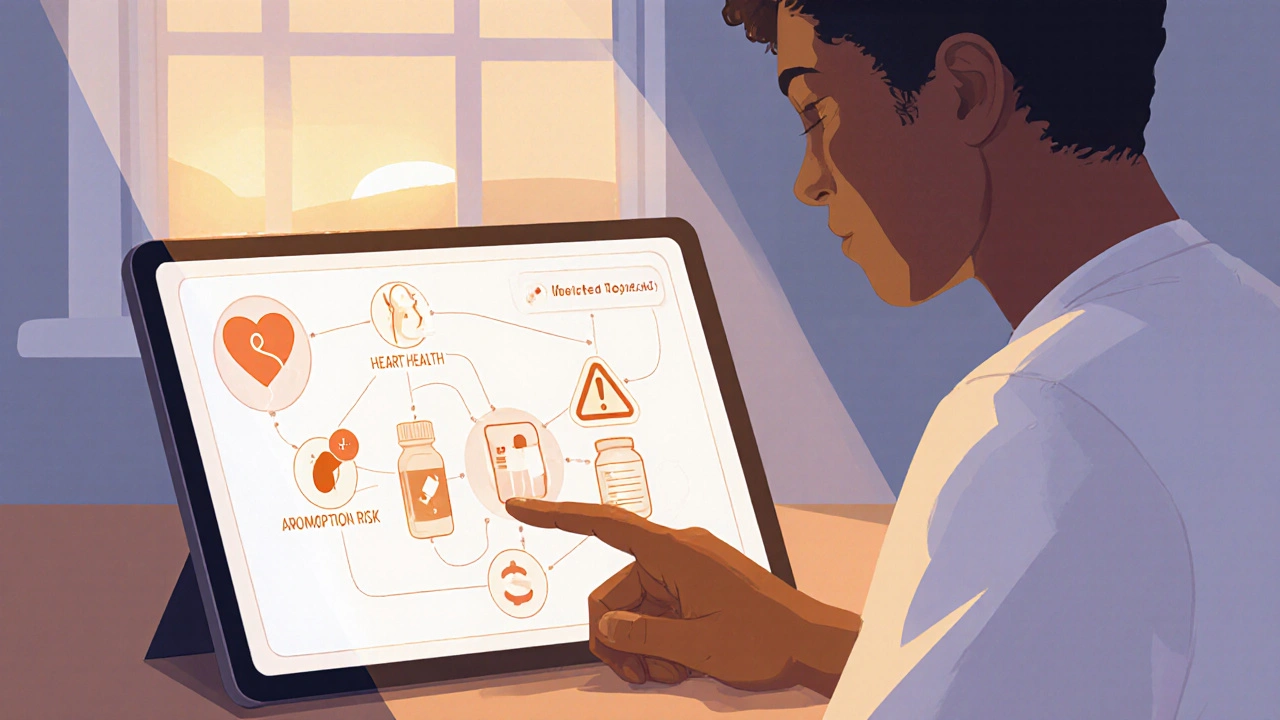SGLT2 Inhibitors: What They Are, How They Work, and What You Need to Know
When you hear SGLT2 inhibitors, a class of oral diabetes medications that lower blood sugar by making the kidneys remove glucose through urine. Also known as gliflozins, they’re not just for blood sugar—they’re changing how we treat heart and kidney disease too. Unlike older diabetes drugs that force your body to make more insulin, SGLT2 inhibitors let your body do the work naturally. They block a protein in your kidneys called SGLT2, which normally reabsorbs sugar back into your blood. When it’s blocked, excess sugar leaves your body through urine—no extra insulin needed.
This simple trick has big ripple effects. People taking empagliflozin, a specific SGLT2 inhibitor proven to reduce heart failure hospitalizations and cardiovascular death in high-risk patients saw fewer heart-related emergencies in major trials. Same goes for dapagliflozin, another SGLT2 inhibitor shown to slow kidney disease progression even in non-diabetic patients. These aren’t side effects—they’re core benefits. That’s why doctors now prescribe them for heart failure and chronic kidney disease, even if the patient doesn’t have diabetes. They also tend to cause modest weight loss, lower blood pressure, and reduce fluid buildup—things most diabetes drugs don’t do.
But they’re not magic. You might notice more frequent urination, especially at first. Some people get yeast infections because sugar in urine creates a cozy spot for fungi. Dehydration is rare but possible, so drink water. And if you’re on insulin or sulfonylureas, your doctor will likely adjust those doses to avoid low blood sugar. These drugs work best when paired with diet, movement, and other meds—not as standalone fixes.
The posts below cover real-world issues tied to SGLT2 inhibitors: how they interact with other drugs, what to watch for with kidney function, how they compare to other diabetes treatments, and even how they fit into broader health patterns like weight changes and fluid balance. You’ll find practical advice on managing side effects, spotting warning signs, and understanding why your doctor might choose one gliflozin over another. Whether you’re taking one, considering it, or just trying to make sense of your prescription, this collection gives you the straight facts—no fluff, no jargon, just what matters.

Euglycemic DKA: Emergency Recognition and Treatment for SGLT2 Inhibitor Users
- Feb, 5 2026
- 13
EDKA is a dangerous condition where high ketones occur despite normal blood sugar, often in people on SGLT2 inhibitor diabetes drugs. Unlike traditional DKA, it's hard to spot because glucose levels don't spike. Symptoms like nausea and vomiting can be mistaken for other issues. Immediate ketone testing and emergency care are critical. Patients must check ketones during illness, even with normal glucose.

Empagliflozin vs Other Diabetes Drugs: In‑Depth Comparison
- Oct, 4 2025
- 14
In-depth comparison of Empagliflozin with other diabetes drugs, covering efficacy, heart/kidney benefits, side effects, costs, and which patients should choose each option.
Categories
- Health and Medicine (64)
- Health and Wellness (57)
- Medicine (37)
- Women's Health (11)
- Mental Health (9)
- Men's Health (7)
- Beauty and Wellness (4)
- Health Information (4)
Archives
- February 2026 (10)
- January 2026 (25)
- December 2025 (28)
- November 2025 (25)
- October 2025 (27)
- September 2025 (14)
- August 2025 (3)
- July 2025 (2)
- June 2025 (2)
- May 2025 (3)
- April 2025 (4)
- March 2025 (4)
- online pharmacy
- medication safety
- dietary supplement
- health benefits
- dietary supplements
- generic drugs
- prevention
- fertility
- online pharmacy Australia
- side effects
- QT prolongation
- medication side effects
- diabetes medications
- GLP-1 agonists
- nocebo effect
- brand vs generic
- treatment
- treatment options
- benefits
- connection
